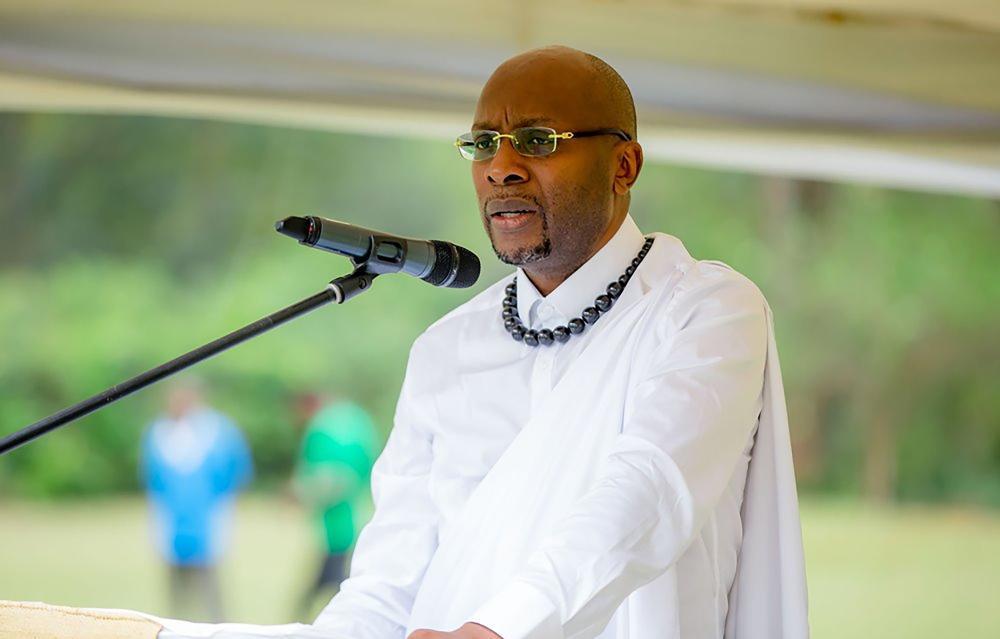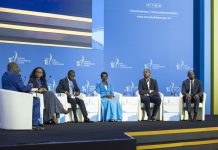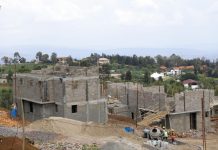Africa-Press – Rwanda. The government has unveiled a comprehensive strategy to promote the wider use of Kinyarwanda across all sectors of national life, positioning the language as a key driver of unity, cultural pride, and transformational governance.
In a newly adopted Sports and Culture Sector Strategic Plan (SSP) 2024–2029, the government highlights the limited use of Kinyarwanda in education, administration, business, and media as a persistent challenge.
To address this, the plan outlines ambitious measures aimed at strengthening the role of Kinyarwanda in daily communication and service delivery.
These measures include developing updated Kinyarwanda vocabulary to reflect technological and societal changes, launching nationwide awareness campaigns targeting artists, journalists, parents, students, and institutions, and introducing policy guidelines to encourage the language’s use in key service sectors.
The strategy also integrates the preservation of Kinyarwanda into broader civic education efforts through the revitalization of the Itorero program at all levels including schools, villages, and Rwandan communities abroad—emphasising the language as a foundation of national values.
The Rwanda Cultural and Heritage Academy (RCHA) will lead efforts to monitor the use of Kinyarwanda across institutions, noting a baseline of 49% usage in private institutions as of 2023/2024. The plan aims for a 10% annual increase in usage over the next five years.
Speaking to The New Times, Robert Masozera, Director General of the RCHA, stressed that the promotion of Kinyarwanda goes beyond linguistics—it is a cultural imperative.
“Kinyarwanda is more than a communication tool; it is the vessel of our values, the foundation of our unity, and the thread that binds us as a people,” he said. “It is through Kinyarwanda that we express our identity, transmit knowledge, and pass on our heritage,” Masozera said.
Despite 99.7% of Rwandans speaking Kinyarwanda, according to the Fifth General Population and Housing Census (2022), challenges remain in accessing services in their mother tongue.
A 2022–2023 study by the Rwanda Academy of Language and Culture (RALC) found that 12.7% of people reported difficulties when services were provided in foreign languages; 19.5% needed clarification; 5.8% lacked sufficient information in non-Kinyarwanda languages; 19.5% experienced service delays; and 42.5% did not understand written content in foreign languages.
For many professionals, this language gap starts in education.
Elvis Kwizera, a lawyer in Kigali, highlighted the disconnect between university training and professional realities.
“Court proceedings are often conducted entirely in Kinyarwanda, yet we were never taught legal terminology in Kinyarwanda at university,” he said. “It feels like starting a whole new course after graduation.”
He called for integrating Kinyarwanda technical vocabulary into university curricula to better prepare students for the local job market.
Céline Umutesi, a journalist at Igihe, shared similar concerns about journalism education.
“Most of what you learn will be applied here in Rwanda. That’s why it’s better to start learning how to communicate effectively with the community you’ll serve,” she said, adding that waiting to acquire these skills during internships or on the job leaves young journalists at a disadvantage.
She stressed the journalist’s role as the voice of the community: “If you can’t communicate with them properly, then you have failed as a journalist.”
As part of the broader cultural revival, seven new studies on Kinyarwanda, Rwandan culture, and values will be commissioned. The plan also prioritises digitising heritage collections and promoting the language through creative industries—especially music, film, and education.
With strong government backing and measurable goals, officials say the renewed focus on Kinyarwanda will strengthen national identity and inclusion while safeguarding Rwanda’s cultural heritage for future generations.
A linguist’s perspective
Bernard Gatabazi, a Kinyarwanda lecturer at the University of Rwanda, said the sidelining of the national language is especially evident in education and public services.
“In some cases, Rwandan children study only in English or French, and Kinyarwanda is sidelined—even at home, where parents encourage children to speak English, as if Kinyarwanda has no value,” he said.
He cited challenges across sectors—from hospitals to banks to airports—where essential information is often unavailable in Kinyarwanda.
“At hospitals, prescriptions are often written in English or French. How are senior citizens who don’t have formal education expected to understand them without someone interpreting? The same goes for banks, where forms are only in English. Ordinary citizens end up asking for help just to fill a form,” he said.
He referenced research, including a Master’s thesis on the marginal use of Kinyarwanda in banking services, to underscore the issue.
Gatabazi emphasized the importance of targeting young people, noting that “language carries culture” and cautioning against distorting Kinyarwanda through careless usage. He also recommended incorporating Kinyarwanda components in job interviews to assess candidates’ capacity to serve the local population effectively.
“There are many ideas, but we will keep working together and raising awareness,” he said.
For More News And Analysis About Rwanda Follow Africa-Press






